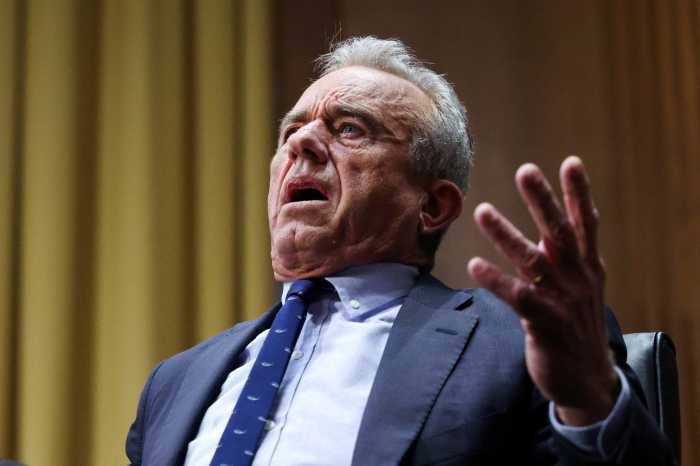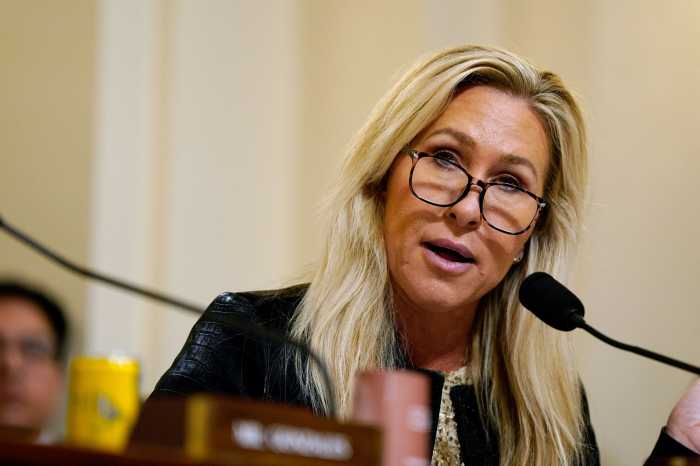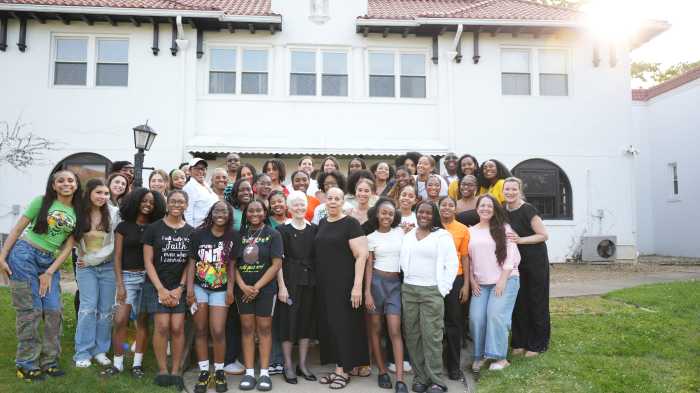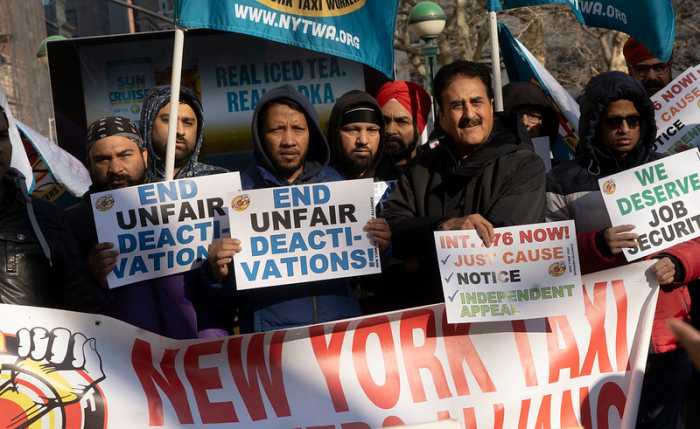VOLUME 4, ISSUE 4 |Jan 27 — February 2, 2005
MARRIAGE
Sharp Rejection of Indiana Marriage
Appeals court unanimously rejects marriage claim of three couples in Vermont civil unions
The Indiana Court of Appeals ruled on January 20 that the state’s Defense of Marriage Act (DOMA), which prohibits same-sex couples from marrying, does not violate any requirements of the state Constitution. The unanimous ruling, announced in an opinion for the court by Judge Michael P. Barnes, adopted the rationale that one purpose of the marriage law was to channel reproductive sexual activity in responsible directions, and that letting same-sex couples marry would not advance this purpose.
The case was brought by the Indiana Civil Liberties Union on behalf of three same-sex couples who live in Indiana, but traveled to Vermont to become civil union partners and then returned home hoping to be married in their home state. Indiana statute provides, with blunt succinctness, “Only a female may marry a male. Only a male may marry a female.” The couples filed suit in August 2002, asking the trial court to issue an injunction requiring their county clerks to issue marriage licenses to them, arguing that the state DOMA violated three provisions of the state Constitution.
The first provision they relied upon was very similar to ones found in the Vermont and Massachusetts Constitutions under which those states’ marriage cases were decided: “The General Assembly shall not grant to any citizen, or class of citizens, privileges or immunities, which, upon the same terms, shall not equally belong to all citizens.”
Indiana precedent, as summarized in Barnes’ opinion for the court, imposes two restrictions on the Legislature: “disparate treatment accorded by the legislation must be reasonably related to inherent characteristics which distinguish the unequally treated classes,” and “the preferential treatment must be uniformly applicable and equally available to all persons similarly situated.” The same precedent however, requires that “courts must exercise substantial deference to legislative discretion.”
Thus, in contrast to other jurisdictions, the Indiana Constitution has been held to impose a very limited equality requirement on the Legislature when it passes laws, which are given a presumption of constitutionality.
Barnes found that one of the aims of the marriage laws are to ensure that children will be raised within the enhanced stability of a marital home, though he conceded that same-sex couples in Indiana are raising children, who would benefit were their parents able to marry. However, because same-sex couples cannot procreate sexually, marriage laws are not needed in order to encourage their sexual behavior in the direction of stable homes for children. In other words, because same-sex couples responsibly undertake to have and raise children, there is no need for the state to reinforce their households by letting them marry. The court found that same-sex couples desiring children have to engage in a process of planning, investing time and resources that would likely deter any of them from casually undertaking the process, whereas an opposite-sex couple can procreate unintentionally through casual sex. Thus, incentives for good conduct should be provided to opposite-sex couples in the form of marital rights.
Barnes buttressed his ruling with references to the scholarship of Professor Lynn Wardle, a conservative Mormon legal expert at Brigham Young University Law School who asserts that being raised by same-sex parents is harmful to children and that same-sex partners should not be allowed to marry
In the court’s view, in light of the limited requirements of Indiana equal protection jurisprudence, so long as there is one state interest associated with marriage that would not apply to same-sex couples, it is then rational for the state to withhold same-sex marriage from such couples.
The other constitutional provision that the plaintiffs relied upon proved no more helpful to their case. The Indiana Constitution’s preamble includes language about equality, liberty and fundamental rights, but the court found that no statute had been declared unconstitutional based solely on those general policy proclamations in half a century. Older cases which did rely on the preamble’s rhetoric focused on the idea that the state is limited with respect to the “core values” of individual liberty, and the court was not inclined to find that “same-sex marriage” could be a “core value” or “fundamental right.” Even the most favorable marriage decisions—by courts in Hawaii, Vermont and Massachusetts—have not taken the position that there was a fundamental right for somebody to marry another person of the same sex under American law.
Although the court’s decision was unanimous, Judge Ezra Friedlander wrote separately to voice some uneasiness with the reasoning, noting that, “the prohibition against same-sex marriage is justifiable because the purpose of the DOMA legislation is to encourage responsible procreation, and same-sex couples cannot procreate through sexual intercourse. I must admit that I am somewhat troubled by this reasoning. Pursuant to this rationale, the State presumably could also prohibit sterile individuals or women past their child-bearing years from marrying… Yet, [DOMA]’s narrow focus is to prohibit marriage among only one subset of consenting adults that is incapable of conceiving in the traditional manner—same-sex couples. Such laser-like aim suggests to me that the real motivation behind [DOMA] might be discriminatory.”
The Indiana Supreme Court, however, previously ruled that the motivation behind a statute was irrelevant to its constitutionality.
“The question Plaintiffs wish us to ponder is whether civil marriage ought to be an option available to same-sex couples in Indiana,” Friedlander continued. “[Existing precedent] simply will not permit us to tackle that issue.”
Friedlander suggested that the appropriate place for the plaintiffs to take their quest is to the state Legislature.
gaycitynews.com




































